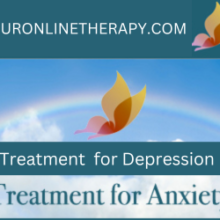Do you have mental heath Issue ? How to know ?
Here is how to find out if you have Mental Heath Issues
1. Recognize common symptoms: Mental health issues can manifest in various ways, but some common symptoms include persistent sadness or mood swings, excessive worry or anxiety, changes in sleep or appetite patterns, social withdrawal or isolation, difficulty concentrating, unexplained physical symptoms, irritability, and feelings of hopelessness or worthlessness.
2. Assess the impact on daily functioning: Mental health issues can significantly affect a person’s ability to function in their daily life. If you notice that the symptoms are interfering with work or school performance, relationships, self-care, or overall quality of life, it may indicate a mental health concern.
3. Consider duration and intensity: Mental health issues are typically characterized by symptoms that persist for an extended period (e.g., weeks or months) and are more intense or disruptive than usual fluctuations in mood or behavior. If symptoms persist and cause distress or impairment, it’s important to seek further evaluation.
4. Seek professional evaluation: Consulting with a qualified mental health professional, such as a psychologist, psychiatrist, or licensed therapist, is the most reliable way to determine if you have a mental health issue. These professionals can conduct a thorough assessment, consider your symptoms, history, and context, and provide an accurate diagnosis or guidance.
5. Reach out for support: If you’re unsure but suspect you may be experiencing mental health issues, it’s important to reach out for support. Talk to a trusted friend, family member, or healthcare professional who can provide guidance, offer a listening ear, and help you navigate the process of seeking professional help.
6. Utilize mental health screening tools: Mental health screening tools, such as questionnaires or online assessments, can provide a preliminary indication of potential mental health concerns. These tools are not diagnostic, but they can help raise awareness and guide further evaluation by a professional.
7. Be open and honest: When discussing your mental health concerns with a professional, it’s essential to be open and honest about your symptoms, thoughts, and emotions. This will allow them to provide accurate assessment and appropriate support.
Remember, mental health is complex, and it’s important to rely on the expertise of qualified professionals for an accurate diagnosis and treatment recommendations. They can provide personalized guidance based on a comprehensive evaluation of your unique situation.
If you or someone you know is in crisis or experiencing severe distress, it’s important to seek immediate help from a local emergency hotline or healthcare provider.
Consulting with qualified mental health professionals is crucial for personalized advice and support.
Here are some additional details about mental health issues and seeking help:
8. Types of Mental Health Issues: Mental health issues encompass a wide range of conditions, including depression, anxiety disorders, bipolar disorder, schizophrenia, post-traumatic stress disorder (PTSD), eating disorders, obsessive-compulsive disorder (OCD), and personality disorders, among others. Each condition has its own unique symptoms, causes, and treatment approaches.
9. Seeking Professional Help: If you suspect you may have a mental health issue, it’s important to reach out to qualified professionals for evaluation and support. Start by contacting a primary care physician, who can provide referrals to mental health specialists or prescribe necessary medications. Psychologists, psychiatrists, and licensed therapists are trained to assess and treat mental health conditions.
10. Confidentiality and Trust: Mental health professionals adhere to strict confidentiality guidelines. This means that the information you share during therapy sessions is kept confidential, except in certain circumstances where there is a risk of harm to yourself or others. Establishing trust and open communication with your therapist is crucial for effective treatment.
11. Therapy and Counseling: Therapy is a common and effective treatment approach for mental health issues. Different types of therapy, such as cognitive-behavioral therapy (CBT), dialectical behavior therapy (DBT), psychodynamic therapy, and family therapy, among others, may be recommended depending on your specific needs and the nature of the condition.
12. Medication: In some cases, medication may be prescribed as part of the treatment plan. Psychiatrists are medical doctors who specialize in mental health and can evaluate your symptoms, determine if medication is necessary, and provide appropriate prescriptions. Medication can help manage symptoms and improve overall well-being in conjunction with therapy.
13. Support Networks: Support from friends, family, and support groups can play a vital role in managing mental health issues. Connecting with others who have similar experiences can provide empathy, validation, and practical coping strategies. Support groups can be found through community organizations, online platforms, or mental health advocacy groups.
14. Self-Care and Lifestyle Changes: Engaging in self-care activities, such as exercise, maintaining a balanced diet, practicing relaxation techniques, getting enough sleep, and engaging in hobbies or activities you enjoy, can contribute to overall mental well-being. Making positive lifestyle changes and managing stress can also have a significant impact on mental health.
15. Ongoing Treatment and Maintenance: Mental health treatment is often a journey, and it’s important to maintain ongoing care even after symptoms improve. Regular therapy sessions, medication management (if applicable), and self-care practices can help manage symptoms, prevent relapse, and support long-term well-being.
Remember, everyone’s experience with mental health is unique, and treatment approaches may vary. It’s important to consult with qualified mental health professionals for personalized advice, diagnosis, or treatment.
If you or someone you know is in immediate danger or experiencing a mental health crisis, please contact your local emergency services or helpline.








